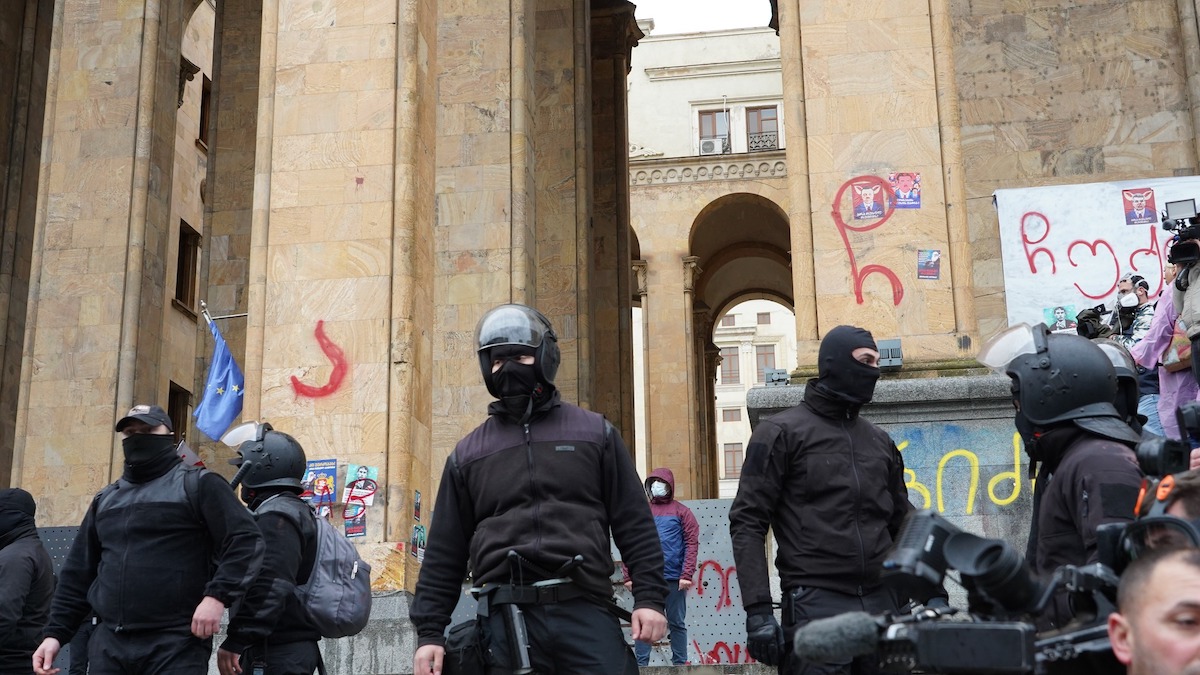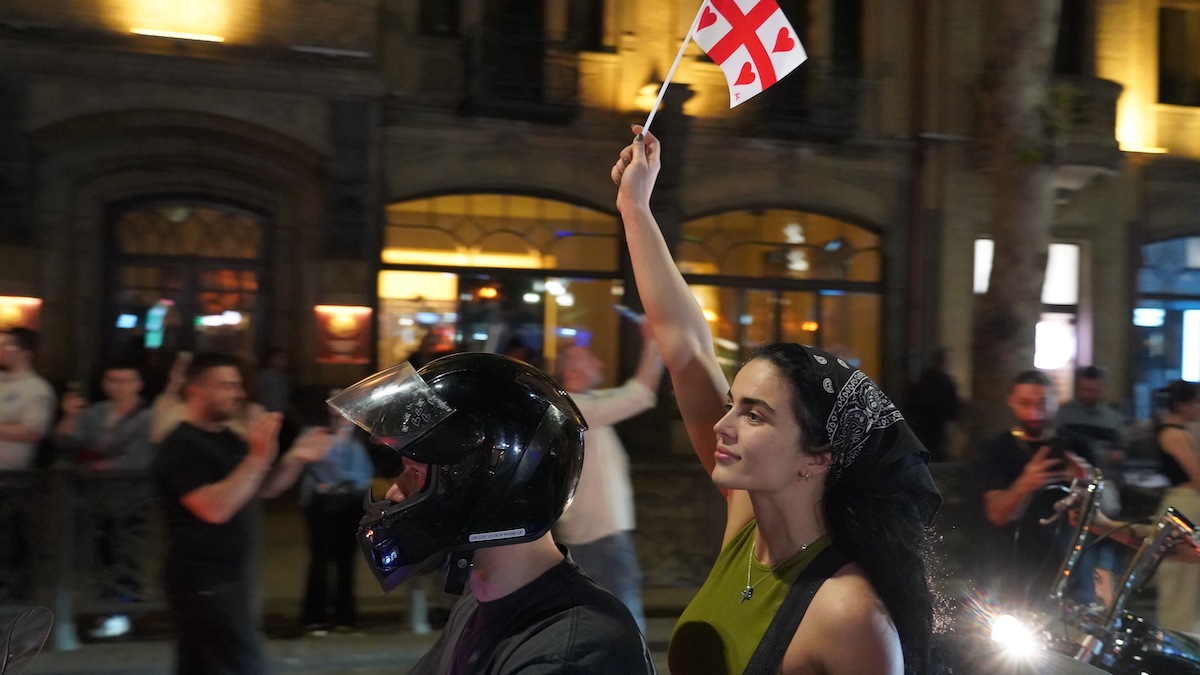
Beatings of activists and violence in Georgia
“Georgia: Human Rights in the Context of the ‘Foreign Agents’ Law” is the title of a report by the non-governmental organization “Association of Young Lawyers,” which summarizes the period from the introduction of the ‘Foreign Agents’ law to its adoption.
According to the report, during these two months, the authorities employed numerous violent methods to pressure civil society.
These included violence by law enforcement officers, encouragement of violence by high-ranking political officials, gross violations of the right to freedom of assembly, and more.
Physical violence and insults
The report highlights numerous cases of physical violence and verbal abuse by law enforcement officers and third parties (so-called “titushki”) against opponents of the draft law.
In most cases, police measures during protests were unlawful and disproportionate.
Journalists’ safety not guaranteed
Media representatives’ freedom of speech was significantly restricted. Journalists’ safety was not ensured. The report notes that this trend began in previous years but worsened significantly after the adoption of the “foreign agents” law.
“Instances of unlawful interference with journalists’ professional activities have increased,” the report states.
Arrests and criminal cases
During ongoing protests against the “Russian law,” as the law on “Foreign Influence” is commonly referred to in society, approximately 210 people were arrested between April and May 2024, according to GYLA. Criminal cases were initiated against eight individuals.
Ensuring the right to a fair trial was an important task for the detained individuals.
Participants identified and summoned for interrogation
The Ministry of Internal Affairs (MIA) continues to summon protest participants for questioning.
“There is suspicion that the MIA is using this criminal legal mechanism to intimidate demonstrators. Criminal prosecution of protest participants may be aimed at suppressing the impulse of protest action and intimidating citizens,” the report states.
Threatening phone calls as intimidation
GYLA identified numerous cases of intimidation and threats against demonstrators and civil society representatives, activists, linked to their critical stance on the “Russian law.”
One form of repression used was threatening phone calls. Opponents of the “foreign agents” law were mass-called, insulted, and threatened.
Attacks on activists supported by high-ranking officials
Evidence that attacks on citizens were supported by high-ranking state representatives includes a public post on Facebook by Dimitri Samkharadze, a member of the parliamentary majority, dated May 31, 2024, according to the GYLA report.
Samkharadze, a lawmaker from the ruling Georgian Dream party, posted a video on Facebook showing eggs being thrown at a building housing the visa center of the British Consulate, TV BMG, the “New Party,” and other international companies. Commenting on the video, Samkharadze wrote that this was a response to harassment of government members.
Threats of dismissal and social media pressure on public servants
According to the GYLA report, threats of dismissal were made to people working in state institutions, and they were also forced to like posts by politicians from the “Georgian Dream” party, particularly Tbilisi Mayor Kakha Kaladze, on social media.
The report also indicates that the state uses other repressive methods against opponents of the “foreign agents” law.
Restrictions on access to healthcare programs
“Concerns have been raised that the state uses various repressive methods against opponents of the ‘Russian law,’ allegedly limiting their access to municipal healthcare programs.
In one case reported to a regional branch of GYLA, a citizen filed an application to the municipality in April 2024, requesting one-time assistance to pay for medical tests due to health problems.
According to the citizen, they were immediately promised 500 lari [approximately $175], but they never received written confirmation, despite more than a month passing.
The citizen stated that before this, acquaintances working in local government asked them not to share posts against the “Russian law.” The citizen suspects that local government selectively distributes state resources only among its supporters,” the report concludes.
Beatings of activists and violence in Georgia

